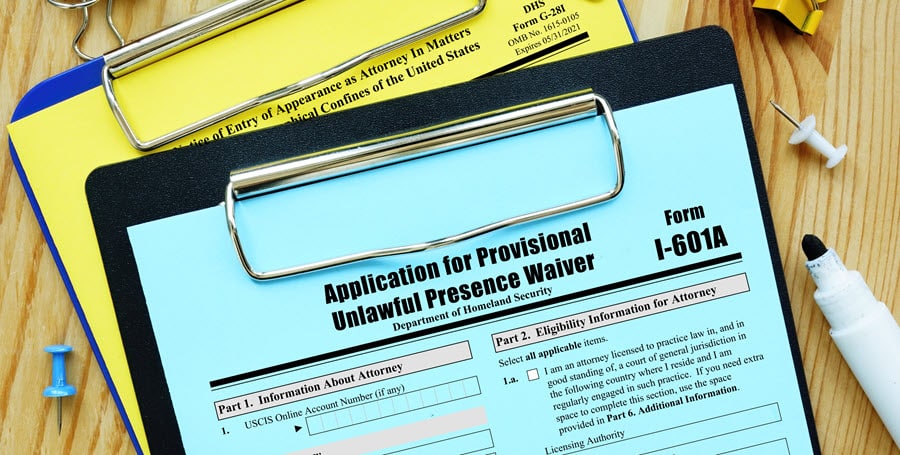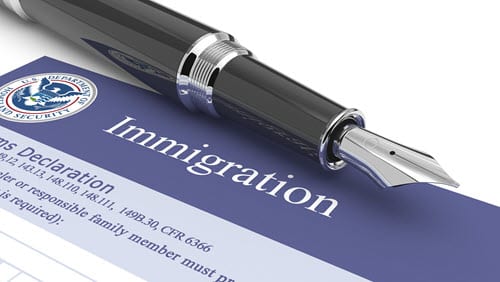
Slidell Immigration Waiver Lawyer
Helping Slidell immigration applicants get over hurdles

Unfortunately, some immigrants won’t be able to get a visa, green card, adjustment of status, or non-immigrant visa due to their criminal record, health violations, or breaches of U.S. immigration laws. The Slidell immigration lawyers at the Law Office of James A. Graham know why some immigrants are inadmissible and will help them gather the evidence and detail the steps necessary to successfully obtain an immigration waiver.

How can we help?
- What are the various kinds of immigration waivers?
- What are provisional unlawful presence waivers?
- Under what circumstances does USCIS allow waivers to immigrants?
- Why would an individual request a waiver?
- Can an immigrant be denied entrance into the U.S. on public health grounds?
- What are the waiver eligibility and evidence requirements?
- Do you have a Slidell immigration waiver lawyer near me?
What are the various kinds of immigration waivers?

Numerous immigration waiver categories exist, and eligibility for a specific waiver depends on the individual circumstances. Here is an overview of the primary types of waivers:
Inadmissibility waivers for non-immigrants
The following waivers are applicable when individuals intend to enter the U.S. but certain aspects of their history make them ineligible:
- Waivers for crimes over 15 years ago: Available for applicants seeking an immigrant visa, adjustment of status, or facing removal proceedings. Eligibility requires no conviction of an aggravated felony post-admission, seven years of U.S. residency, verification of a 15-year-old offense, absence of current threat, and proof of rehabilitation.
Waivers for moral turpitude crimes: Another hardship waiver with a residency requirement of seven years and a condition of no "non-aggravated felony since admission" to facilitate family unity.
Removal waivers
Removal waivers apply to non-immigrants or lawful permanent residents, including humanitarian waivers for those accused of fraud or misrepresentation, as well as waivers to prevent deportation after a criminal conviction.
Extreme hardship waivers for family members
Extreme hardship waivers generally require a foreigner to demonstrate their status as a spouse or parent of a U.S. citizen or lawful permanent resident, with denial of the waiver causing extreme hardship. "3-Year Bar" and "10-Year Bar" rules are imposed on non-immigrants who unlawfully resided and/or worked in the U.S. and seek re-entry. However, waivers may be granted to spouses or children of an LPR or U.S. citizen demonstrating qualifying hardship. Our Slidell immigration waiver lawyers will help present a compelling case for an extreme hardship waiver to USCIS.
National interest waiver
These waivers are exclusively for those pursuing employment-based, second-preference visas for specific professions. Guidelines for these waivers were updated in January 2022, and further details can be found here.
What are provisional unlawful presence waivers?
Under USCIS guidelines, certain immigrant visa applicants related to U.S. citizens or lawful permanent residents can "seek a provisional waiver of the grounds of inadmissibility based on unlawful presence under Immigration and Nationality Act section 212 (a)(9)(B), before departing the United States for an immigrant visa interview at a U.S. Embassy or Consulate" by completing Form I-601A.
Form I-601A allows the foreign individual to apply for an immigration waiver while still in the U.S., prior to their scheduled interview at a U.S. embassy or consulate to minimize the time they must spend outside the U.S. The I-601 waiver form might also be an option for individuals unlawfully present in the U.S. for a period exceeding 180 days.

Under what circumstances does the USCIS allow waivers to immigrants?


According to the USCIS, a waiver may be granted for various reasons, including:
- Promoting family unity and humanitarian outcomes
- Offering relief to refugees, asylees, human trafficking victims, those who have been the victim of certain criminal acts, and other such applicants seeking protection or permanent residency in the United States
- Advancing national interest by permitting noncitizens admission to the U.S. if doing so benefits the country's welfare
- Ensuring that applicants meet all medical requirements before admission or, if already admitted, receive any necessary treatment to address public health and safety concerns.
- Balancing public safety and national security concerns against the social and humanitarian benefits of admitting a noncitizen.
Eligibility for an immigration inadmissibility waiver is outlined in the Immigration and Nationality Act (INA) of 1952 and subsequent amendments.
When might an individual request a waiver?
Applicants may decide to seek a waiver if they:
- Experienced deportation or removal from the U.S.
- Exceeded their authorized stay in the U.S.
- Faced charges or were convicted of a crime
- Are ineligible for citizenship
- Committed crimes or acts involving moral turpitude
- Engaged in immigration fraud or misrepresentation
- Were implicated in human trafficking
- Have specific health-related issues
- Belong to a totalitarian party
- Are subject to a civil penalty in the foreign country
- Have a potential risk of becoming a public charge
- Lack the required Department of Labor Certificate
- Violated any other grounds leading to inadmissibility
Could an immigrant be denied entrance into the U.S. on public health grounds?
Yes, Individuals seeking entry into the U.S. may face denial on grounds related to public health for two specific reasons:
Communicable diseases
According to the USCIS policy manual, “ The INA authorizes USCIS to exercise discretion in deciding whether to waive inadmissibility based on a communicable disease of public health significance.” The waiver application involves assessing the applicant's eligibility, consulting with the CDC, and determining whether the waiver is warranted as a matter of discretion.
Vaccination requirements
A waiver from the vaccine requirement may be considered if the applicant has received the necessary vaccines by the date of the visa or adjustment decision. Additionally, the waiver may be applied if a civil surgeon or a "panel physician certifies that such vaccination would not be medically appropriate" or if receiving a specific vaccine goes against the applicant's religious beliefs or moral convictions.
Waivers are not usually available for adjustment of status and immigrant visa applicants who are inadmissible due to drug abuse or addiction.
What are the waiver eligibility and evidence requirements?
Eligibility depends upon three things: 1) the availability of a waiver for the particular ground of inadmissibility, 2) whether the applicant meets statutory and regulatory guidelines, and 3) the justification for a favorable decision. During the assessment, the USCIS officer will consider whether the inadmissibility ground could be waived and if the applicant meets the conditions for the waiver. In cases involving previous removal or unlawful reentry, the applicant must submit an "Application for Permission to Reapply for Admission into the United States after Deportation or Removal (Form I-212)," commonly known as consent or permission to reapply.
Our experienced Slidell immigration waiver lawyers help applicants present compelling evidence that effectively supports their claims. If health issues demand a waiver, collaboration with the applicant's doctor is started to address the health concern. When additional family relationship information is required beyond what has already been given, the USCIS will obtain the necessary marriage, birth, and adoption certificates, along with other pertinent evidence.
Do you have a Slidell family immigration waiver lawyer near me?
With locations in New Orleans and Slidell, the Law Office of James A. Graham proudly serves clients across South Louisiana and offers phone or video conferences as a courtesy to those who are unable to travel.
Speak with our experienced Slidell immigration waiver attorneys today
At the Law Office of James A. Graham, our Slidell immigration lawyers help immigrants who might be ineligible to obtain a visa, green card, or other benefits. To learn more about when and how to apply for an immigration waiver, please call us or fill out our contact form to schedule a consultation with an experienced immigration lawyer in Slidell.
